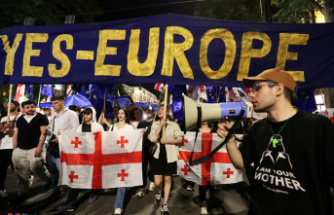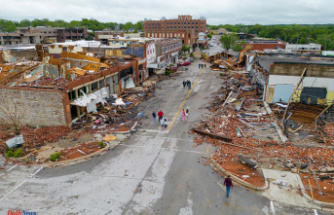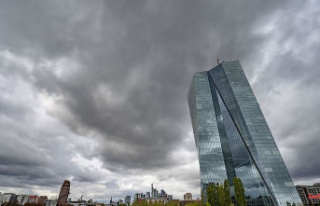Europe has been hit by numerous forest fires this year. Unlike in the past, mountain regions are now also affected. With a view to climate forecasts, decisive action is urgently needed.
Dresden (dpa/sn) - According to experts, Europe must prepare for an increase in forest fires in the future and improve prevention and control. "The development forces us to not regulate things on a small scale, but to react with national strategies and European brand management," said researcher Matthias Forkel from the Technical University of Dresden of the German Press Agency. Under his leadership, 70 experts from several countries had discussed a holistic strategy for brand management over the past few days. The participants came from Greece, Portugal, Spain and Austria, among others.
According to Forkel, there are already approaches to joint action, for example via the so-called European Civil Protection Mechanism. It also regulates mutual aid in the event of devastating forest fires. However, firefighting in Europe is regulated very differently. In Germany, for example, the municipalities with their fire brigades are initially responsible. Only when a disaster occurs does the district, the state or later the federal government come into play. Then there is the possibility of requesting help from other EU countries. "Czech Republic did that with the forest fire in Bohemian Switzerland in the summer and got help from Sweden and Italy."
A monitoring system for assessing the risk of forest fires already exists, said Forkel. The European Forest Fire Information System provides information on the risk of forest fires. "It's not very accurate though." It is about recognizing the danger of forest fires on a small scale. Unlike in the past, this year's fires also affected mountainous regions, including the Alps, the Harz Mountains and Saxon Switzerland. "So far there has not been adequate monitoring in such areas. We are actually unprepared for that."
Forkel is convinced that northern and central Europe can learn from the experiences of the Mediterranean countries - especially in practical matters. It's less about planting more robust tree species because the ecosystems are too different. The decisive factor is how firefighting can be coordinated at a higher level. "Portugal has become a role model out of painful experience. In 2017, more than 60 people died in forest fires there. That has changed a lot in how we deal with the fires," emphasized the researcher. Even the training of firefighters to fight forest fires is organized nationally there.
"You can also learn from the Mediterranean region the concept of the Wildland Urban Interface - the interface between wilderness and housing development. This is also a big issue in Australia and the USA," explained Forkel. Today, settlements are often overgrown with the forest, gardens and houses often border directly on nature. If a forest fire breaks out, it can quickly spread to residential buildings. "In Portugal, concepts are being developed as to how this can be prevented - for example by using the garden as a natural firebreak or by using sprinkler systems to minimize the risk."
"There are also model studies in Portugal to establish shelters with kitchens and the possibility of medical care in endangered villages. In the event of a forest fire, the residents can retreat there because this space is protected by a moat, for example." Parallels to the Mediterranean region can now be drawn in Central and Northern Europe. "We have to adapt to it. It won't get any better in the future." Technology can help to detect forest fires earlier: "But it's much more important not to let them start in the first place."












